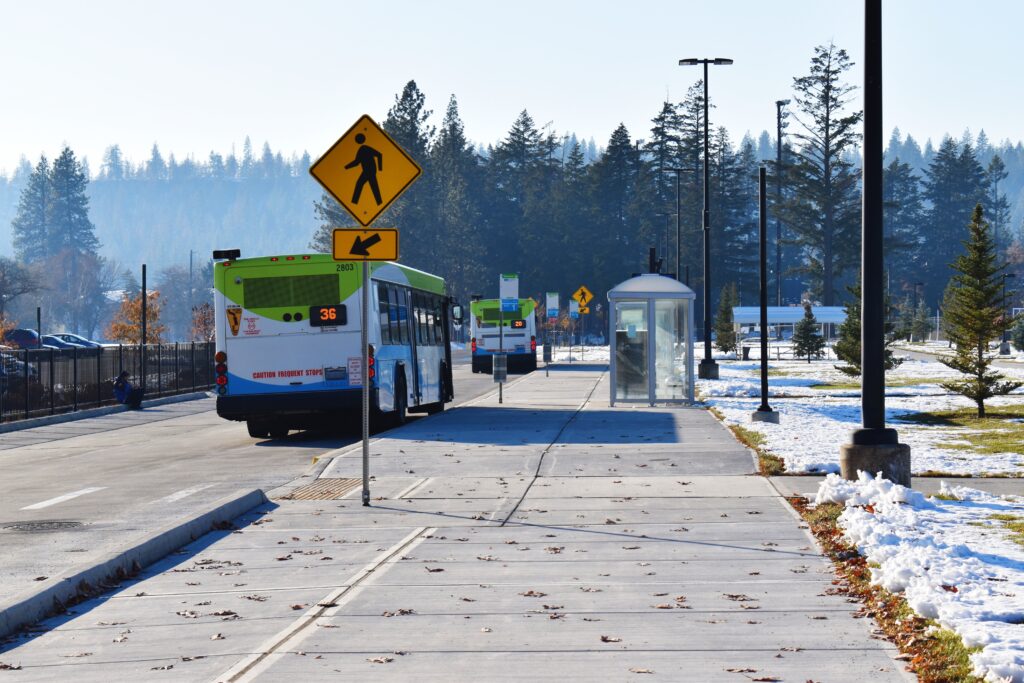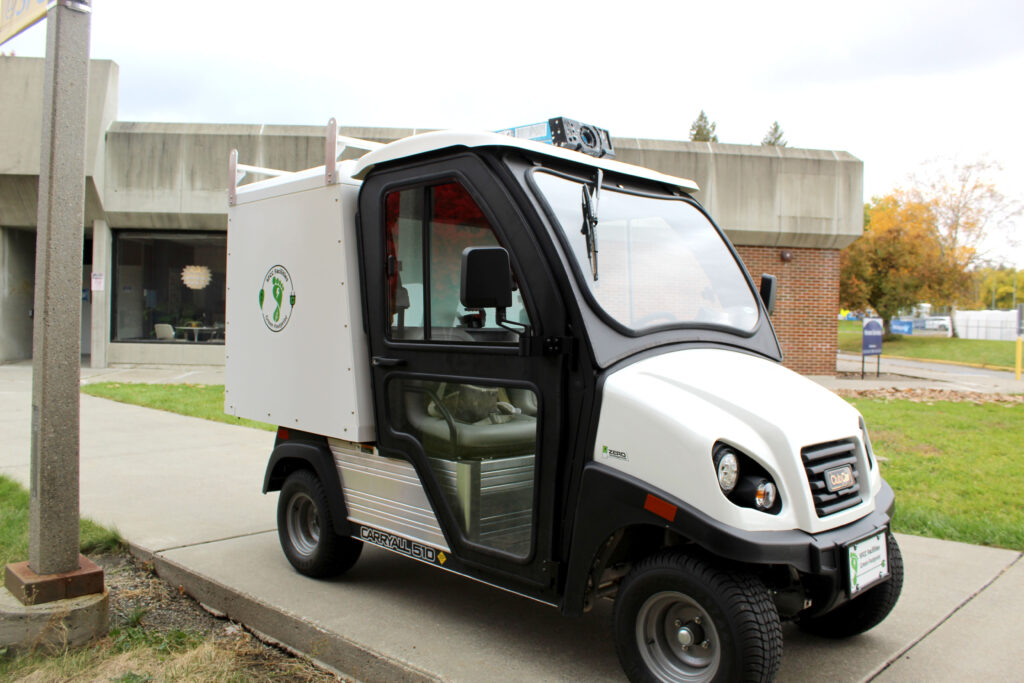
Achieving a sustainable campus is reliant upon a community aware and active with its environmental practices and care. It takes a collective effort to achieve and maintain eco-friendly performance. Among state legislation, student activism and resource conservation, sasquatch sustainability is on the rise.
As per their mission statement, The SFCC Environmental Club aims to promote and educate the campus community on the core concepts of responsible and innovative resource use, political action to achieve ecologically beneficial and productive legislation, as well as daily environmentally-sound practices.
Advising the Environmental Club, professor and founder of SFCC’s Sustainability Center, Monica Stenzel tasks herself in leading students towards making sustainable change and promoting activism.
“One of our best drivers for making change on campus comes from student leadership,” said Stenzel. “If the students want things, often that’s the best way to make it happen. Not all students know what they can do or what other options they get. We go to what’s familiar and convenient.”
Familiarity and convenience are traits often favored by college students immersed in their chaotic lives, but with small efforts of individual action across campus, change is possible.
“Something I would love to see,” says Stenzel, “is getting all of the vending machines to have only glass or aluminum – no plastic bottles.”
Anders Johnson, the Student Lead Representative for Environmental Club adds, “or possibly compostable plastic, and providing compostable bins on campus.”
Johnson has taken on a role of student leadership within Environmental Club and ASG, producing sustainable activism.
“As my position as the finance and legislative director,” Johnson says, “one of the biggest things I’m hoping to do this year is to address the Sustainability Action Plan that was made last year and see what other changes we can do to make the campus more sustainable. It is one of our goals to address the trash that we produce both a group and as a campus.”
The Environmental Club is curating eco-friendly practices on campus, but striding towards sustainable action also occurs on a legislative level.
In 2020, Washington State updated its State Agency Climate Leadership Act, requiring state agencies such as colleges and universities to make moves towards sustainability in reducing their greenhouse gas emissions to the following standards:
15% below 2005 baseline by 2020,
45% below 2005 by 2030,
70% below 2005 by 2040,
95% below 2005 by 2050, achieve net zero.
The Clean Buildings Law requires buildings over 50,000sq. ft.to be tracked in energy usage. 16 buildings between both CCS campuses require individual metering to track each source of independent energy.
To help with this, CCS employed a duo of Resource Conservation Managers (RCM), Andrew Lemberg and Reed Williams to overlook the eco-concerned umbrella covering HVAC scheduling, acquiring electrical vehicles, waste overhaul, instillation of smart irrigation, and Greenhouse Gasses Emissions (GHG) annual reporting.
“I’ve always thought of sustainability as meeting the needs of the present,” said Williams, “ensuring you can also meet the needs of future humans, generations and life forms. Promoting eco-friendliness on campus creates a more long-term and sustainable environment.”
Sustainability on campus encapsulates focusing on often overlooked areas where waste is present, to examining larger more identifiable forms of waste. The waste overhaul project launched at the end of 2018, and fully deployed by 2019. Within this project, the RCM’s took on universalizing the trash system on campus.
“Different styles, different sizes [of trash cans] required different types of liners,” said Williams. “Decreasing the variety of trash cans saves $15,000 a year in plastic liners alone, increasing the waste diversion rate. In 2018, it was about 7 percent, so only 7 percent of our waste was getting recycled or composted, and now it has increased above 70 percent. Things have totally flipped in the world of waste.”
While physical waste is often more recognizable, there are less tangible aspects of waste reduction that we might not realize need to be acted upon.
“Another one is LED retrofits,” stated Williams. “Changing all the lights from fluorescent and incandescent, basically old lightbulbs to new light bulbs, decreases electrical usage by 30 percent.”
Over the summer, the Resource Conservation Managers installed electrical and natural gas meters in every building measuring over 50,000 sq. ft., and have begun the process of slowly transitioning Facilities’ campus vehicles from gas to electric. Electric vehicles are a recent eco-initiative with intentions to go a long way in terms of energy conservation.

“The plan is,” Williams states, “that anytime we need a new vehicle in facilities that need to be replaced, we’ll get an E.V. (Electric Vehicle).”
There are currently three Electric Facilities Vehicles on the SFCC campus since the transition began in May 2021. One assigned to each: groundworks, custodial, and painting. Governor Inslee’s Executive Order 21-04, it is mandated to have specific portions of campus vehicles be electric fleets by the following dates:
40% by 2025,
75% by 2030,
And 100% by 2035.
Between Resource Conservation, state legislation and Environmental Club’s student activism, Spokane Falls is constantly growing in its eco-friendly practices, and laying a foundation for students to think with a sustainable mindset.